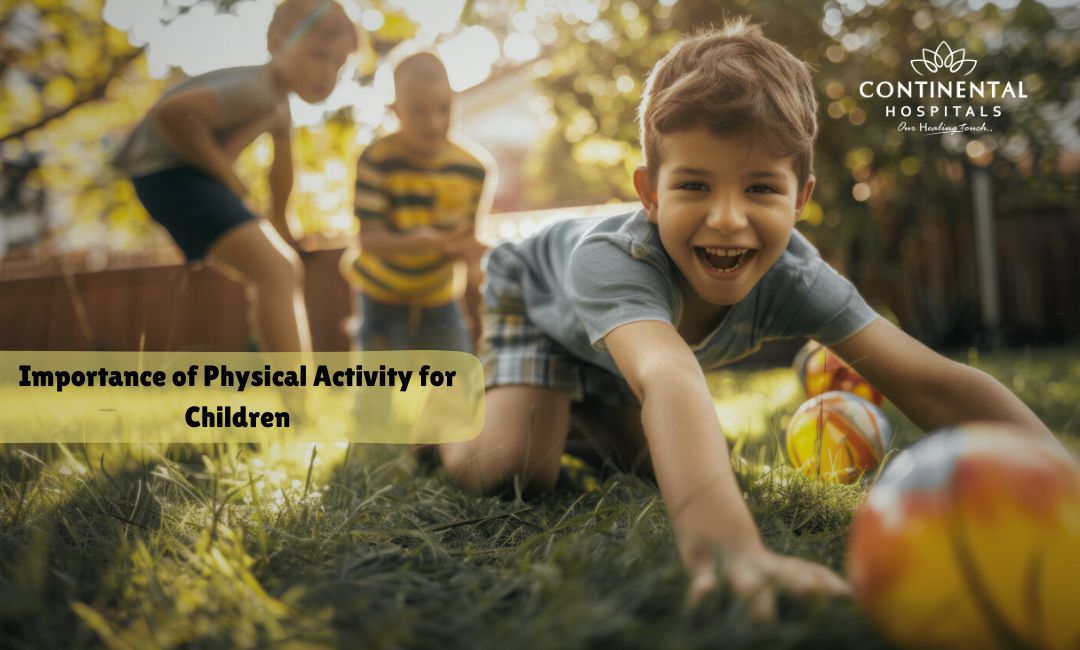Physical activity is not merely a way to keep children occupied; it's fundamental for their holistic health and well-being. In a modern era where sedentary behaviors are prevalent, emphasizing the significance of consistent physical activity for children is paramount. Regular engagement in physical activity is crucial for various reasons. Firstly, it promotes healthy growth and development, fostering strong bones, muscles, and cardiovascular health. Additionally, physical activity plays a pivotal role in preventing obesity and reducing the risk of chronic diseases like diabetes and heart disease. Furthermore, exercise enhances cognitive function, including memory, attention, and academic performance. It also fosters social skills through interaction and cooperation in team sports or group activities. Moreover, physical activity serves as a natural stress reliever, reducing anxiety and promoting better mental well-being. Parents play a crucial role in motivating their children to stay active by leading by example, making exercise enjoyable, setting realistic goals, providing positive reinforcement, limiting screen time, offering variety, and creating opportunities for unstructured play. By prioritizing physical activity, parents can instill lifelong habits that promote health and happiness in their children.
Why is Physical Activity Important for Children?
Healthy Growth and Development: Regular physical activity is essential for children's growth and development. It helps build strong bones and muscles, improves cardiovascular health, and enhances motor skills and coordination.
Mental Well-being: Physical activity is not just beneficial for the body; it's also crucial for mental health. Exercise releases endorphins, the body's natural feel-good chemicals, which can help reduce stress, anxiety, and depression in children.
Academic Performance: Research shows that physical activity is linked to better academic performance. Exercise improves concentration, memory, and cognitive function, all of which are vital for learning and academic success.
Healthy Habits for Life: Encouraging physical activity from a young age sets the stage for a lifetime of healthy habits. Children who engage in regular exercise are more likely to carry these habits into adulthood, reducing the risk of chronic diseases later in life.
The Benefits of Physical Activity for Children
Improved Physical Health: Regular physical activity helps children maintain a healthy weight, reducing the risk of obesity and related health issues such as type 2 diabetes and heart disease. It also strengthens muscles and bones, promoting overall physical fitness and resilience.
Enhanced Mental Well-being: Physical activity has been shown to boost mood and self-esteem in children. It provides a natural outlet for stress and anxiety, promoting emotional well-being and resilience.
Social Interaction: Participating in physical activities such as team sports or group classes offers children opportunities to socialize, make friends, and develop important social skills such as communication, teamwork, and cooperation.
Better Sleep: Regular exercise can improve sleep quality and duration in children. Physical activity helps regulate sleep patterns, promotes relaxation, and reduces bedtime resistance, leading to more restful nights and better overall health.
Academic Performance: Physical activity is not just beneficial for the body; it also enhances cognitive function and academic performance. Research suggests that children who engage in regular exercise perform better academically, with improved attention, memory, and problem-solving skills.
The Role of Parents in Motivating Children to Stay Active
Lead by Example: Children are more likely to be active if they see their parents and caregivers leading active lifestyles. Be a role model by prioritizing physical activity in your own life and involving your children in your activities.
Make it Fun: The key to motivating children to be active is to make it fun and enjoyable. Offer a variety of activities to choose from, such as sports, games, dance, and outdoor play. Let children explore different activities and discover what they enjoy most.
Set Realistic Goals: Encourage children to set achievable goals for themselves, whether it's improving their running speed, mastering a new skill, or completing a fitness challenge. Celebrate their progress and accomplishments along the way to keep them motivated.
Be Supportive and Encouraging: Offer praise and encouragement to children for their efforts and achievements, no matter how small. Positive reinforcement boosts their confidence and motivation to continue being active.
Create Opportunities for Activity: Limit screen time and sedentary activities, and instead, create opportunities for physical activity throughout the day. Schedule regular family walks or bike rides, organize active playdates with friends, and encourage outdoor play whenever possible.
Make it a Family Affair: Get the whole family involved in physical activities and make it a fun bonding experience. Plan active outings such as hiking, swimming, or playing sports together, and enjoy the benefits of being active as a family.
Embracing a Lifetime of Health and Happiness
Physical activity is not just about keeping children active; it's about empowering them to lead healthy, fulfilling lives. By understanding the importance of physical activity, embracing its myriad benefits, and motivating children to stay active, parents can lay the groundwork for a lifetime of health and happiness. Let's prioritize physical activity for our children's well-being and watch them thrive in body, mind, and spirit.
.webp)







